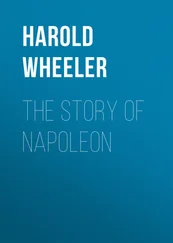Nelson, who now made the acquaintance of Jervis, early discerned that his senior officer was a man more after his own heart than either Hotham or Sir Hyde Parker, who had held the command during the interim. He was offered either a 90-gun or a 74-gun ship, but preferred to keep to the well-tried Agamemnon , for whose crew he cherished a fond affection. He was confident that in the succeeding Spring the victorious French would “make a great exertion to get into Italy.” This they did, but by land and not by sea as Nelson anticipated. After refitting Nelson was still kept on the lookout, descents on Italy being thought not improbable, but in February 1796 he was off Toulon for a short time to spy on the doings of the French fleet. His health was by no means good: “I am grown old and battered to pieces, and require some repairs. However, on the whole, I have stood the fag better than could be expected.” In the following month Nelson became a Commodore, hoisting his distinguishing pennant on the Captain (74) a little later, the condition of the ship which had served him so long and so well being such that she could no longer be patched up to withstand the gales without being overhauled in England.
The war was going from bad to worse so far as the allies were concerned. The armies of the King of Sardinia and Piedmont and of the Emperor of the Holy Roman Empire acted in separate bodies, whereas they would have been superior to the enemy had they concentrated. The battle of Montenotte, fought on the 12th April 1796, took the Austrians completely by surprise, and enabled Napoleon to boast that his “title of nobility” dated from this great victory. Millesimo, Dego, Mondovi, and Cherasco fell, France and Sardinia made peace, followed by an armistice between Naples and the Republic which preluded a cessation of hostilities in the following October.
Конец ознакомительного фрагмента.
Текст предоставлен ООО «ЛитРес».
Прочитайте эту книгу целиком, купив полную легальную версию на ЛитРес.
Безопасно оплатить книгу можно банковской картой Visa, MasterCard, Maestro, со счета мобильного телефона, с платежного терминала, в салоне МТС или Связной, через PayPal, WebMoney, Яндекс.Деньги, QIWI Кошелек, бонусными картами или другим удобным Вам способом.
Robert Browning.
The Report is given in full in Laughton’s edition of “Nelson’s Letters and Despatches,” pp. 409–11. The editor discovered it in the Record Office, Admiral’s Despatches, Mediterranean, xxxi. 272.
See lines on page opposite.
A Chippendale arm-chair, which was given to Nelson by his great grandfather, was presented by the boy to Mrs Luckins, his nurse, when he left home to join the Navy. It appeared in an auction room so recently as 1908.
In other words, tow the vessels.
Ships of war sent to accompany merchantmen during hostilities so as to protect them from the enemy.
A private vessel commissioned to attack and capture the vessels of an enemy.
See post , Chapter xix.
Nelson’s successor and friend.
Sir Richard Bickerton (1727–92) sailed from England with a convoy on the 6th February 1782. He took part in an indecisive engagement with Suffrein, off Pondicherry, on the 20th June 1783. Not more than two-thirds of the British crews were effective owing to scurvy.
In his Autobiography Nelson gives the number as three.
More detailed particulars of this thrilling siege will be found in the author’s companion volume, “The Story of Napoleon,” pp. 60–64.
See ante , page 43.
Captain Benjamin Hallowell (1760–1834). He afterwards assumed the name of Carew, and became a Vice-Admiral in 1819.
“The Royal Navy,” by Wm. Laird Clowes, vol. iv., p. 153, vol. v., pp. 9–10.
“The Navy League Annual, 1910–11,” p. 226.












